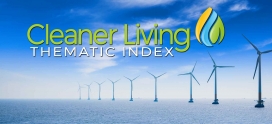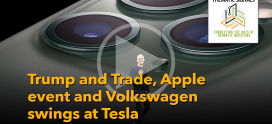The World’s Biggest Brands Going Green With Refillables
We are seeing yet another shift in consumer products at the intersection of our Clean Living and Disruptive Innovators investing themes wherein the world’s biggest consumer brands are looking to provide their products to consumers in refillable containers so as to reduce waste. This creates a tailwind behind those providing the containers and the refilling services.
A recent Wall Street Journal article discussed the massive potential impact of this change.
Refillables once dominated industries such as beer and soft drinks but lost out to convenient, affordable single-use containers. In 1947, refillables made up 100% of soft-drink containers by volume and 86% of beer containers, according to the Container Recycling Institute, a nonprofit. By 1998 those figures dropped to 0.4% and 3.3%, respectively.
Our Clean Living investing theme goes beyond just what we put into and on our bodies to our impact on our environment. The WSJ article points out that those companies that provide the more environmentally friendly offerings will be able to attract those consumers who value that feature, an ever-growing portion of households.
Critics question whether the project will achieve scale in the face of high costs and entrenched consumer behavior. But, if successful, the companies say the efforts will reduce waste from single-use packaging. It could also be a way to woo eco-conscious consumers, glean data and foster brand loyalty.
We are still in the early stages of this, so your team at Tematica will be keeping a close eye on how this progresses and which companies are best poised to take advantage of the new packaging and fulfillment needs.
Unilever will sell nine brands in refillable containers as part of the initiative, which will be run by recycling company TerraCycle Inc. and start with 5,000 shoppers in New York and Paris in May. The pilot will extend to London later this year and cities including Toronto and Tokyo next year, according to TerraCycle.
Do I really use 100 of these over 8 years?
Unilever estimates a refillable steel container for its Axe and Dove stick deodorants will last eight years—long enough to prevent the disposal of as many as 100 traditional deodorant packages.
The range of products to be offered is quite extensive.
PepsiCo will sell its Tropicana orange juice in a glass bottle and Quaker Chocolate Cruesli cereal in a stainless-steel container as part of the trial.
P&G will sell 10 brands, including Pantene shampoo in an aluminum bottle, Tide laundry detergent in a stainless-steel container and an Oral B toothbrush with a durable handle and a replaceable head.
This can also be a way to increase switching costs, which will serve to improve brand and product loyalty.
“It’s really about a new delivery system and making sure once people are hooked into this they stay with the product,” said P&G’s chief sustainability officer, Virginie Helias.
The bottom line here is consumer tastes are ever evolving. Successful investing requires looking towards what features consumers will be wanting in the future and how they will want them fulfilled.
Source: The World’s Biggest Brands Want You to Refill Your Orange Juice and Deodorant – WSJ




